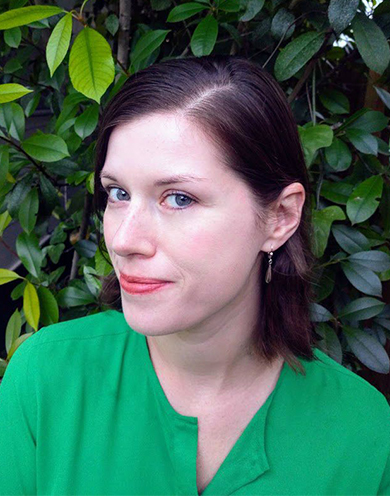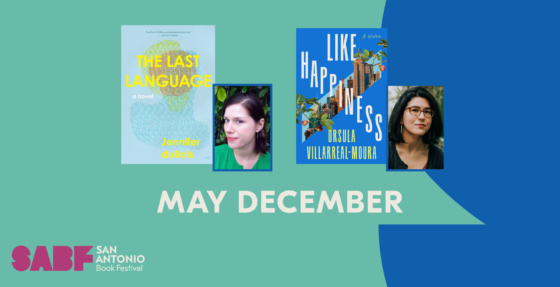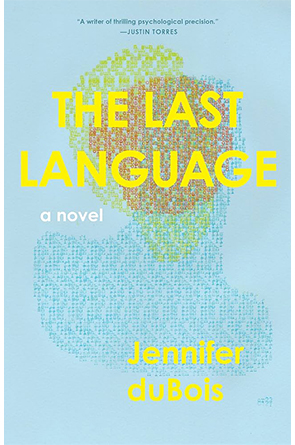Jennifer duBois’s debut novel, A Partial History of Lost Causes, was the winner of the California Book Award, the Northern California Book Award, a Whiting Award, a National Book Foundation 5 Under 35 honor, and was a finalist for the PEN/Hemingway Award for Debut Novel. Her second novel, Cartwheel, was a finalist for the New York Public Library’s Young Lions Fiction Award and the winner of the Housatonic Book Award. DuBois’s third novel, The Spectators, was a recipient of a National Endowments for the Arts Creative Writing Fellowship and a Civitella Ranieri Fellowship. A graduate of the Iowa Writers’ Workshop and recipient of the Stanford University Stegner Fellowship, duBois teaches in the MFA program at Texas State University. The Last Language is her fourth novel.

Book by Jennifer duBois
-
The Last Language
In 2001, a few months after the death of her husband, Angela is devastated when she is ejected from her graduate program in linguistics at Harvard University. Soon after, she suffers a miscarriage. Spinning and raw, and with suppressed unresolved trauma, the young widow and her four-year-old child move into her mother's house.
Trained with an understanding of spoken language as the essential foundation of thought, Angela finds underpaid work at the Center, a fledgling organization utilizing an experimental therapy aimed at helping nonspeaking patients with motor impairments. Through the Center, Angela begins to work closely with Sam, a twenty-eight-year-old patient who has been confined to his bedroom for most of his life. Sam quickly takes to the technology--and so does Angela.
Her once deeply philosophical interest in language comes vividly to life through her interactions with Sam. Angela becomes intensely drawn to him, and their relationship soon turns intimate. When Sam's family discovers their relationship, they intervene and bring charges. As Angela tells her story from prison in the form of an unrepentant plea, we are plunged into the inner workings of her mind as she rejects all else in pursuit of a more profound understanding of language and humanity.
As the sole narrator and perspective giver, Angela's understanding pushes and pulls us into ambiguity, and a Nabokovian hall of mirrors emerges as she tumbles deeper and deeper into obsession. Provocative and profound in its exploration of the basis of humanity, this is an extraordinary novel from one of our most acclaimed contemporary writers.


